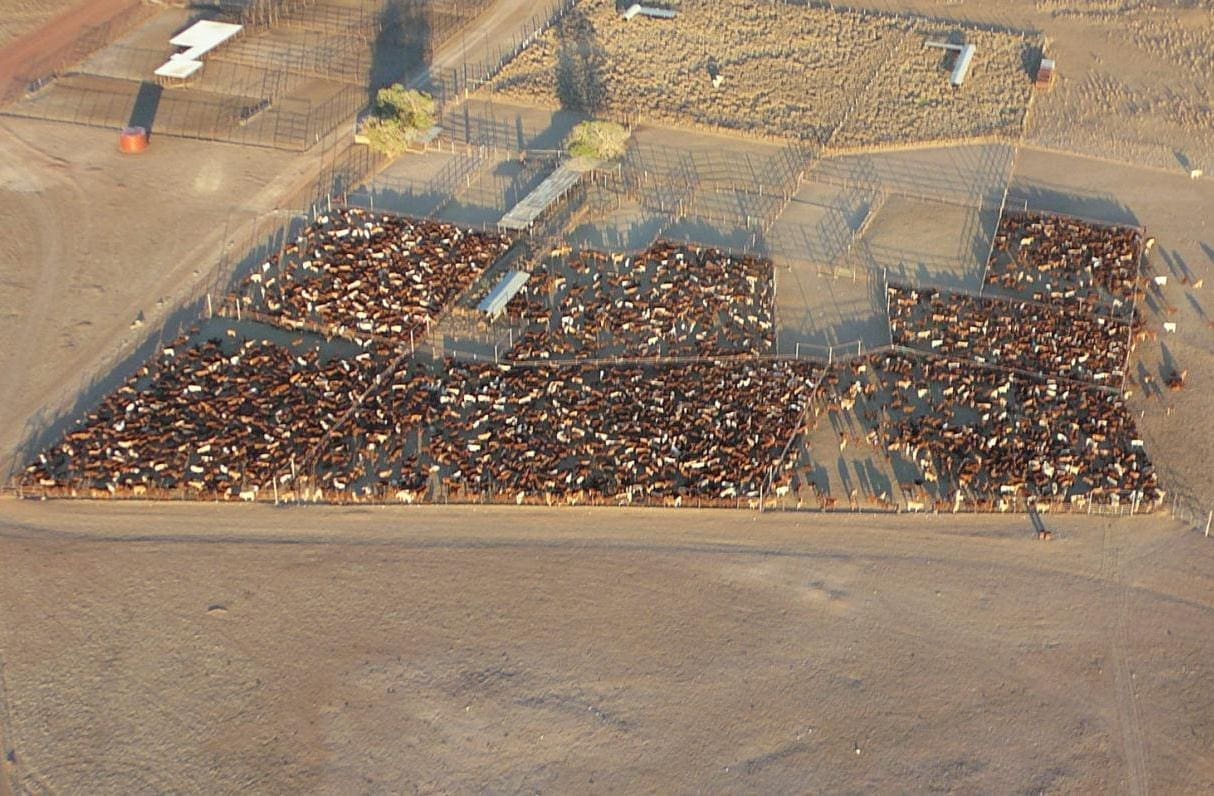Updated 1.45pm
AUSTRALIAN superannuation investment manager, QIC has signed an agreement to acquire an 80 percent interest in the North Australian Pastoral Company.
At the conclusion of the deal, NAPCo’s largest shareholder, the Foster family will retain a 20pc interest.
 Funds managed by QIC including Australian superannuation capital and the UK-based Pension Protection Fund will hold 80pc, having acquired the remainder of the Foster family’s holding and the 34pc of NAPCo currently owned by UK-listed diversified agribusiness investor MP Evans. The majority of the capital involved is Australian in origin, with PPF providing only a minority of the funds.
Funds managed by QIC including Australian superannuation capital and the UK-based Pension Protection Fund will hold 80pc, having acquired the remainder of the Foster family’s holding and the 34pc of NAPCo currently owned by UK-listed diversified agribusiness investor MP Evans. The majority of the capital involved is Australian in origin, with PPF providing only a minority of the funds.
Australian superannuation and fund managers have been conspicuous by their absence in cattle industry investment to this point, in the face of heavy investment competition for large assets from overseas sources. But today’s confirmed QIC deal is already being seen as something of a ‘turning point.’
NAPCo is one of Australia’s oldest and largest agricultural enterprises covering 5.8 million hectares across Queensland and the Northern Territory, currently running about 178,000 head of composite cattle. The current ownership can trace its origins back to 1877.
The vertically-integrated business manages 13 well-located properties as well as the Wainui feedlot on the Darling Downs. Unlike some other larger corporate pastoral players company’s vertical integration model does not extend into branded beef programs or export.
A statement issued this morning said an offer would be made to other minority shareholders to acquire their shares as part of the transaction, and offer them the opportunity, should they wish, to retain an interest in NAPCo.
QIC chief executive Damien Frawley said QIC was proud to lead this investment in Australian agriculture and to be investing Australian superannuation assets into the beef industry.
“This landmark deal was made possible by our unique government heritage, and it captures the benefit of our networks of institutional investors and connections to Asian corporate relationships. It’s a natural evolution for our 25-year-old investment platform,” Mr Frawley said.
QIC’s NAPCo transaction team Marcus Simpson said the Australian food sector was entering a period of exciting development.
“Australia enjoys an enviable reputation for producing clean, healthy food. QIC has a track record of making long-term investments in companies and their people,” Mr Simpson said.
QIC’s vision for NAPCo was to see it prosper by capitalising on strong beef demand driven by growth in Asia which is expected to account for 47pc of global beef demand by 2024.
Mr Simpson said QIC was delighted the Foster family would retain a 20 per cent shareholding in the company. A Foster family representative said the outcome was an excellent one for the company.
“QIC is a logical owner of NAP bringing with it exciting prospects for the future growth of the business. We feel assured that NAP has a bright future, as evidenced by the family’s ongoing investment,” the spokesman said.
As recently as a fortnight ago in a conversation with Beef Central, NAPCo adamantly denied that there was any sale deal close with QIC.
“Nothing is about to happen. We’ve spoken with a lot of people about investment in NAPCo, not only QIC,” chief executive and managing director Nigel Alexander said at the time. “There is no immediate prospect of a sale being announced.”
In this morning’s statement he said the Foster family and NAPCo’s management had built an outstanding beef enterprise over many generations, and were justifiably proud of what has been achieved.
“Under QIC’s stewardship NAPCo is entering an exciting new phase of its development. I’m very confident QIC has the vision and expertise to build the company into the future,” he said.
Asked about the significance of the origin of the investment from domestic channels, Mr Alexander told Beef Central that the NAPCo board was ‘extremely conscious’ of ensuring that any incoming controlling shareholder was compatible with the organisation’s values – particularly in taking a long-term view in any of its investments.
“We’re ecstatic that a Queensland-based organisation that’s been set up by the Queensland Government, ostensibly to manage their superannuation liabilities has seen fit to invest in us,” he said. “They do manage funds for other offshore interests also, but as Australian investors, QIC invests in airports, ports and a range of other infrastructure.”
Mr Alexander cautioned about speculating on price, saying earlier suggestions of +$400 million were not accurate. While NAPCo’s total assets listed in its recent annual report were around $520 million, obviously the net assets of the business are less than that.
Mr Alexander, whose family is a shareholder, plans to step down from his CEO role after 20 years with NAPCo, but has agreed to remain in the role until a successor can be found. He will remain as a NAPCo boardmember.
QIC’s representative on the NAPCo board Phil Cummins said the company had exceptional properties, cattle and management and QIC believed cattlemen and women were the best people to run cattle properties.
“QIC also has significant business development skills to bring to the table. Together we will be a great team. We believe NAPCo has the potential to become a significant regional food champion,” he said. “We are also strongly committed to NAPCo’s high standards of workplace health and safety, animal welfare and sustainable land management practices.”
Asked by Beef Central about the significance of an Australian based super fund making a ground-breaking investment in this way, Mr Cummins said the ‘macro story’ around food production and agri-business was very strong, and compelling – both here and overseas.
“One of the impediments in the past for such investment has been not so much the ‘why’, but the ‘how’,” he said
“That’s the part of the puzzle that we have been focusing on for some time,” he said. “We like to invest in businesses. For us, the way to take advantage of the macro trend over the next decade is to actually be in the business of food production. That’s more difficult to do – you just can’t go out and buy a couple of farms – and its why NAPCo in particular has been very attractive for us.”
Mr Cummins said QIC had looked at a lot of different cattle/beef assets, and while they had their pros and cons, it was always how to get started in an appropriate way.
“We see NAPCo as a great starting point and launching-pad for QIC. It has great assets from breeding through to feedlot; it’s a well-run company; so that gives us the ability to work with the shareholders and management team to expand that over time.”
He said one of the key advantages that QIC could bring to the table was ‘bringing capital to the story.’
“A big issue for the beef sector in general is around capital constraint, and the risk that revolves around that. As an institutional investor, we’re equity investors, and are able to build in this business over a long period of time, focusing both on improving productivity in existing assets, and expanding the existing operations, as well as looking for opportunities to increase the margins for NAPCo’s product.”
Asked whether other Australian institutional investors were now likely to make similar investments, Mr Cummins said there had been a lot of comment and criticism around the lack of it to this point.
“But among people in the investor circles that I talk to, there’s a real desire and interest evident among Australian institutional investors now in the sector. It’s how that’s executed that’s the issue.”
Mr Cummins said QIC saw a lot of other ‘good opportunities’ to expand from the base it had now established with NAPCo, whether that be through some of the larger pastoral enterprises, or smaller ones, in incremental gains.
“But for us, it’s not just about Australian versus international investors in the beef industry. We believe there’s a role for all everyone.”
All of NAPCo’s station managers and senior staff were advised of the developments via a telephone hook-up this morning.
This morning’s statement said QIC was advised by Deloitte Corporate Finance (lead financial adviser), PricewaterhouseCoopers (accounting and tax) and McCullough Robertson (legal).
About North Australian Pastoral Company:
NAPCo is a leader in Australia’s cattle industry and one of Australia’s largest beef producers, with a herd of approximately 178,000 cattle. NAP operates thirteen cattle stations across Qld and the NT, as well as the Wainui feedlot on the Darling Downs.
About QIC:
QIC is a global diversified alternative investment firm offering infrastructure, real estate, private equity, liquid strategies and multi-asset investments. It is one of the largest institutional investment managers in Australia, with A$78.5 billion in funds under management, offering infrastructure, real estate, private equity, liquid strategies and multi-asset investment services. QIC serves more than 90 clients including governments, pension plans, sovereign wealth funds and insurers, spanning Australia, Europe, Asia, Middle East and the US. Headquartered in Brisbane, QIC also has offices in New York, San Francisco, Los Angeles, London, Sydney, and Melbourne.
Source: QIC, NAPCo

